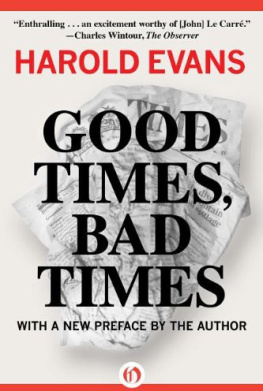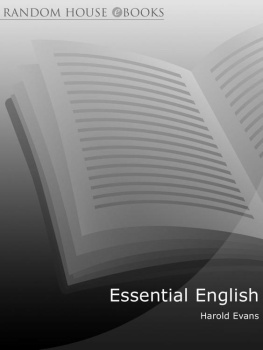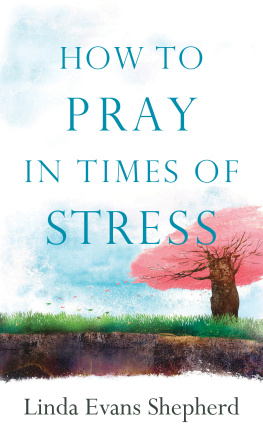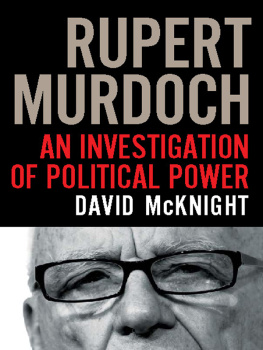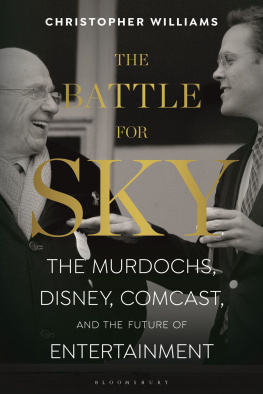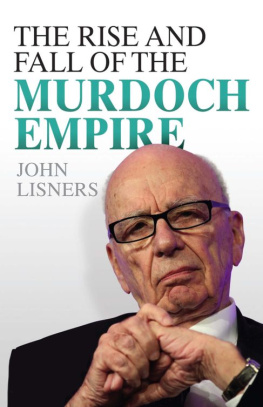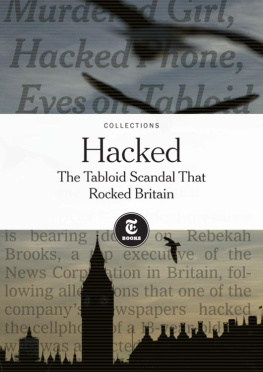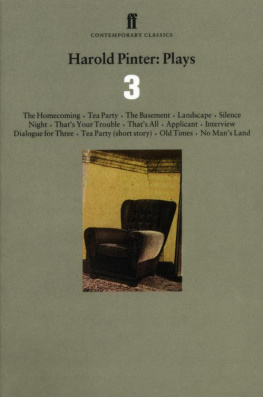GOOD
TIMES,
BAD
TIMES
HAROLD EVANS

PRAISE FOR
GOOD TIMES, BAD TIMES
One of the most important books ever written about the practice and the principles of journalism, and possibly the single best book ever written about a particular episode in the history of a newspaper. Literary Review
Brilliantly written Compulsory reading for all who wish to estimate the strength of the foundations of British democracy.
Lord McGregor, The Times Literary Supplement
Much has been written about Rupert Murdoch by journalists peering in from the outside Good Times, Bad Times is by a journalist who was engaged with Murdoch in a struggle to the death. The New Republic
Valuable for its picture of life at the apex of British Journalism: the dinners at 10 Downing Street, the visits to Buckingham Palace, the daily struggle to put out what is still Englands newspaper of record. Time
Mr Evans writes at a racy gallop, enlivened by some marvellously wicked portraits in his gallery of grotesques.
Michael Leapman, Scotsman
Enthralling the narrative pace is tremendous an immediacy and an excitement worthy of le Carr.
Charles Wintour, The Observer
Evans story must astonish anyone not conversant with newspapers he was a brave and skilful editor and he fought more than most a fascinating book.
Simon Jenkins, The Sunday Times
Much the raciest newspaper narrative since Hugh Cudlipps 20 years ago: rich in flavour, anecdote and personality.
Donald Trelford, Listener
A splendid story well told.
Alastair Hetherington, The Guardian
It is well written, with excitement in some parts, with a sense of history in others. Gordon Newton, The Times
Its a compelling book, a wonderful read. It is often very funny it is also about journalism and good stories and editing One can think of a long list of prime ministers who have done less for publishing liberties in this country than Harold Evans did.
Neal Ascherson, London Review of Books
A wonderfully readable memoir the book brims with excitement and controversy. Publishers Weekly
Fascinating both an uncommonly entertaining tale and an important account of the tribulations of the press in the age of international media barons. Arthur Schlesinger, Jr
Entertaining and important The book has caused a stir
The New York Times
A vivid account of Mr. Evans victories and defeats an engrossing and cautionary tale.
The New York Times Book Review
All the suspense, conflict and intrigue of a spy thriller full of marvellous detail and vivid character paintings.
Michael ONeill, former editor, New York Daily News
Spicy, anecdotal, yet authoritative garnished with tales of intrigue, betrayal, spite, conspiracy. New Society
Extraordinarily well written. A vivid portrait of what it is like to be the editor of a great daily newspaper. Chicago Tribune
A compelling tale of ambition, intrigue, and treachery in the high places of British journalism, full of pungent gossip and acid character sketches.
Piers Brendon, Columbia Journalism Review
ALSO BY THE AUTHOR
The American Century
They Made America: From the Steam Engine to the Search Engine, Two Centuries of Innovators
War Stories: Reporting in the Time of Conflict from the Crimea to Iraq
The Half Free Press (with Katherine Graham and Lord Windlesham)
The Index Lecture: View From Ground Zero
The Active Newsroom
Editing & Design (5 vols)
Essential English
Newspaper Design
Text Typography
Newspaper Headlines
Pictures on a Page
We Learned to Ski (with Brian Jackman and Mark Ottoway)
Suffer the Children: The Story of Thalidomide (with Insight)
The BBC Reports: On America, Its Allies and Enemies, and the Counterattack on Terrorism (BBC Corporation and Harold Evans)
Eyewitness
My Paper Chase
CONTENTS
PREFACE
There is a clear connecting thread between the events I describe in Good Times, Bad Times and the dramas that led so many years later to Rupert Murdochs most humble day of my life. I was seated within a few feet of him in London on 19 July, 2011, as he was cross examined by a cross-party select committee of MPs investigating the hacking of thousands of phones by his News of the World newspaper. Not many more than a score of observers were allowed into the small room at Parliaments Portcullis House, across the road from the House of Commons and Big Ben.
A portcullis is a defensive latticed iron grating hung over the entrance to a fortified castle. Its a perfect metaphor for News Corporation, which perpetually sees itself as beset by enemies. The companys normal style is to soak assailants in boiling oil, but this time Murdoch, as chairman and only begetter of the giant multimedia enterprise, had little choice between defending the indefensible and denying the undeniable. He chose humility, the honest man betrayed by vassals.
It must be wearing for Murdoch to have been let down so frequently over so many years by unscrupulous hacks in his employment who had not learned of his passion for public service journalism; let down, too, by so many of his executives who recklessly risked his reputation and large sums of his money in the concealment of crime. But if he is to be cast as a victim, it can only be in the sense that he was a victim of his own ambitions and his ingrained cynicism. Clearly, despite his spectacular career, he fell short as a competent head of the major media corporation he created. For all his business prowess, which is redoubtable, he presided over a rotten corporate culture. The experiences I describe in Good Times, Bad Times have turned out to be eerily emblematic. The dark and vengeful undertow I experienced in my year editing TheTimes correctly reflected something morally out of joint with the way he ran his company. Of course, News International newspapers, including the News of the World, did some good work. Of course, the direct competitors have hardly been free of the excesses typical of tabloid circulation battles invasions of privacy with not a shred of justification in the public interest; entrapment, fabrication, and malicious gossip; and the occlusion of facts that may stand in the way of a good story. But News International (the News Corp subsidiary) practiced the worst of these vices on an industrial scale, supplemented them with bribery and intimidation, and came to consider itself above the law.
There are two consolations in the whole sorry story, one, that good journalism defeated lousy journalism and, two, that the giant corporation was first called to account by a humble that word again Manchester solicitor-advocate, 47-year-old Mark Lewis. He thought there was something fishy in the way the way the News of the World responded to his complaint in 2006 about the harassment of his client, Gordon Taylor, in the papers pursuit of a non-story about his private life. The whole story slowly unraveled because Lewis pressed and pressed for damages. If he had yielded to the ensuing bullying and blandishments, its likely the scandal would have festered unnoticed; when it did start to become public, Lewis lost his job with his Manchester employers who recoiled from controversy.
The paper Murdoch most affects to despise,

